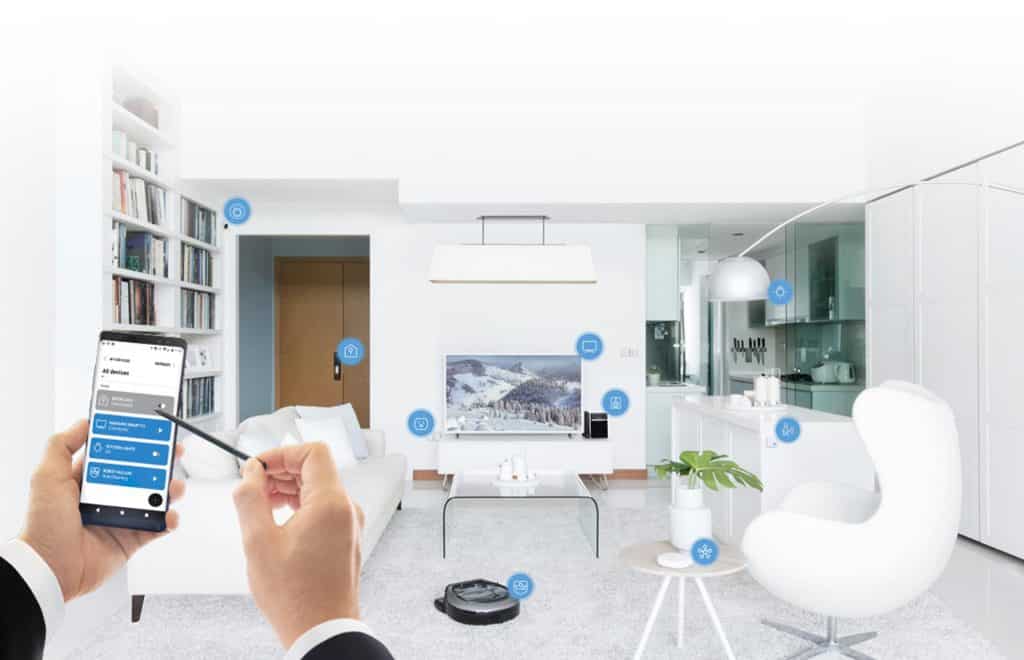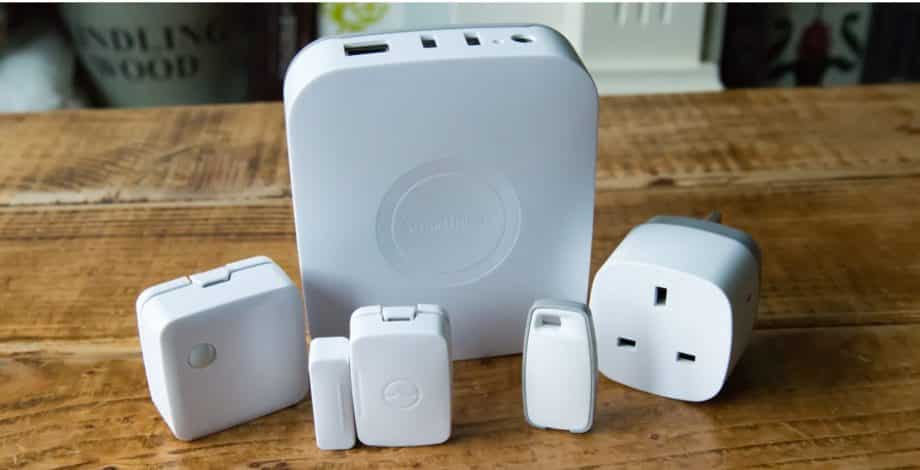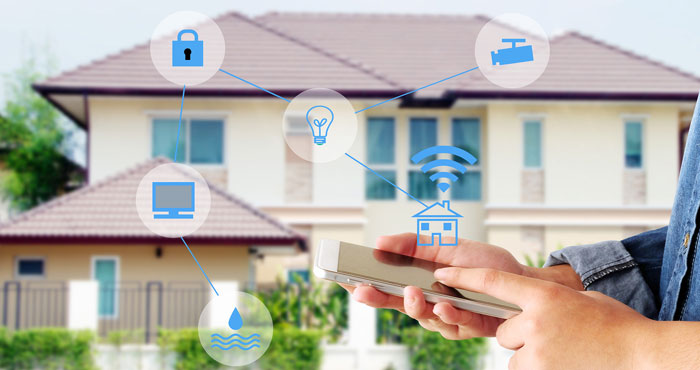What is a smart home? Is it Ironman’s house? How about the Jetsons? Does a smart home have to have robots flying around and about? What about robot pets? In short, a smart home is just a house that able to make its tenants comfortable and more efficient through hands-free means as they live in it. The biggest difference between a smart home and an ordinary house is the ability to interact with the smart home by voice command.
This is done by connecting different smart appliances with a central system, either with Google Home, Alexa, or Siri. These appliances aren’t just physically connected they can also be wirelessly connected to eliminating pesky wires that one may trip in. This connection is not just to every appliance but to the internet as well allowing these different appliances to coordinate with the command of the tenant, making the perfect environment tenant to home interaction.
Looking at energy efficiencies, through its wired and wireless connections, a smart home can detect the different environments within its domain. By doing so, it will be able to control the different energy requirements to keep them at a minimum. This ability to minimize the number of costs to maintain the different aspects of the house will contribute to its low maintenance cost. Subsequently, this low maintenance cost will be a great benefit to whoever is living in that smart home.
So, What Is A Smart Home?
To get to know more about what a smart home is, we shall look into some day-to-day actions which contribute to its comfort and efficiency and compare it to the traditional home. We shall look into the different sources of costs maintaining a house specifically water and electricity.
Whether we have planned it or not, we all have routines. We wake up; We brush our teeth; we read the newspaper; we set the temperature in our showers; we open emails; we set alarms for our days. Except for brushing, all of these could be automated to some degree.
If you have a smart home, you can tell it to wake you up at specific times each day. You can even have it repeat your alarms. All this without having to set it physically. The newspaper, instead of having to walk out and the house and getting the newspaper just to read it, you can have your smart home retrieve it from the internet and read it to you as you brush! The same goes for emails! I can go on and on throughout the day, but as you can see, having a smart home can save you a lot of time through hands-free automation. It is like having more than your current pair of hands and feet when you’re in an ordinary nonsmart house.

What Are Some Benefits To Owning A Smart Home?
Moving to utilities and starting with water, the typical smart home garden system isn’t run by you anymore. These homes fully automate the turning on and turning off of irrigation systems. By doing so, these systems can schedule the most appropriate time and duration to water landscapes such as the lawn, the garden, and even the open backyard. Going into the specifics of the amount of water needed to hydrate the plants, it is quite specific to know how much water it needs to prevent it from drowning.
By automating this watering system and connecting it to the internet, you can control the amount of water needed to hydrate the plants efficiently without subsequently drowning the plant or inducing root rot due to overwatering hands-free! Also by scheduling the time, it should water the plants the home will be able to save the amount of water supposedly evaporating had the irrigation set off during the afternoon when the sun is at its peak.

What About Electricity?
Moving on to electricity, since a smart home will be able to monitor the different aspects of a house through its sensors, it will be able to monitor the temperature requirements of the different areas of the house to minimize the amount of electricity. By doing so, the house will be able to minimize its cost of electricity by having the home decide if a certain area is cold enough then taking necessary actions to just maintain the temperatures of each area of the house.
Another aspect of electricity cost minimization is its ability to save electricity by controlling lights. When sufficient light can illuminate the home, measured through its sensors, the smart home can take cues to close lights saving electricity that could others be wasted. Moreover, it can also take cues from a calendar. A specific application is turning the lights off after a set timer. It can also use motion detection or GPS and turn the lights off as you leave the house.
Given these benefits and aspects, a smart home can go a step further by incorporating machine learning and AI. Doing this allows the home to learn! It can learn what you’d want it to do in the future. From this learning, it will be able to create suggestions. This will be very convenient as these options are automatically presented to you, and you could just choose your command.

In Conclusion
To conclude, a smart home is a house that can do what you command it to do through hands-free means, whether it be voice or gesture. What’s great about smart homes are all the different aspects of savings and comfort you can get. Whether it be through time savings cost savings or stress savings, a smart home is truly helpful, convenient, and, possibly, profit-generating when you consider that time is money! So what are you waiting for? Start making your home smarter and reclaim your free time! Hopefully, this article has shown you what a smart home is and what it can do for you, especially in comparison with your current nonsmart home.

